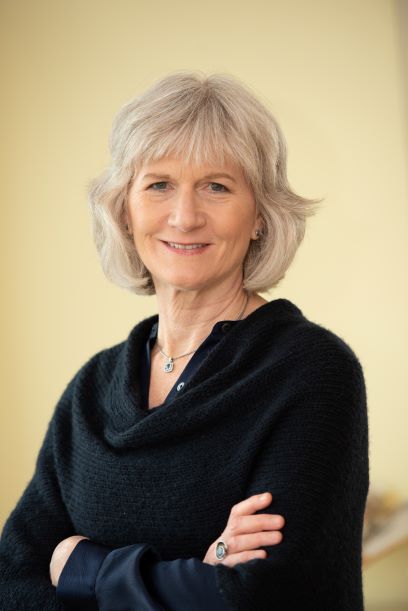
The University of Pittsburgh School of Medicine, the Department of Surgery, and the Thomas E. Starzl Transplantation Institute are honored to present the 2025 Thomas E. Starzl Prize in Surgery and Immunology to Megan Sykes, MD, Michael J. Friedlander Professor of Medicine and professor of microbiology and immunology and surgical sciences, Columbia University, in recognition of her outstanding scientific achievements.
Sykes will deliver her talk, “The Path to Xenograft Tolerance,” on Wednesday, May 21, 2025, at 4 p.m. in Alan Magee Scaife Hall, auditorium 3785 (third-floor entrance). A virtual option will also be available. To receive the Zoom link, please contact Amy Nye.
Sykes is the founding director of the Columbia Center for Translational Immunology (CCTI) at Columbia University, director of research for the Transplant Initiative at Columbia University Medical Center (CUMC) and director of bone marrow transplantation research, Division of Hematology/Oncology, at CUMC. Sykes completed her medical training at the University of Toronto in 1982. After completing a medical residency, she then moved to the National Institutes of Health in 1985 as a Fogarty Visiting Associate. Sykes joined Massachusetts General Hospital and Harvard Medical School as an assistant professor in 1990 and was tenured as a full professor in 1999, then named the Harold and Ellen Danser Chair in Surgery. She moved to Columbia University in 2010 to establish the CCTI, which now has a thriving pre-clinical transplant program including 16 laboratory programs in transplantation, autoimmune disease, infection and cancer immunology and six core facilities.
Sykes introduced the idea that graft-versus-leukemia/lymphoma effects could be separated from graft-versus-host disease (GVHD) following hematopoietic cell transplantation (HCT) by allowing GVH-reactive T cells to expand while preventing migration to the epithelial GVHD target tissues. She showed that inflammation was a critical checkpoint for such migration, which was avoided when GVH-reactive T cells were administered after conditioning-induced inflammation had subsided in mixed chimeras. These studies led to clinical trials of non-myeloablative haploidentical HCT that achieved mixed chimerism across HLA barriers without GVHD. These results paved the way for the first clinical trials of mixed chimerism that achieved renal allograft tolerance across HLA barriers. Sykes pioneered minimal conditioning approaches for using HCT to achieve allograft and xenograft tolerance.
She developed a method of tracking the alloreactive T cell repertoire in human transplant recipients and has used it to understand T lymphocyte dynamics in the graft and the periphery of human transplant recipients. This work led to the discovery of hematopoietic progenitors in the human intestinal mucosa. She has pioneered the development and use of humanized mouse models for the study of type 1 diabetes and for xenograft tolerance induction. Her work on xenogeneic thymic transplantation for tolerance induction led, for the first time, to long-term kidney xenograft survival in non-human primates and is being applied in pig-to-human transplants.
Sykes has published more than 500 papers and chapters describing her work. She has served on the Transplantation Society (TTS) council and has been president of the International Xenotransplantation Association (IXA) and vice president of TTS. She has received many honors and awards, including the American Society of Transplantation Basic Science Established Investigator Award (2007), the TTS Roche Award for Outstanding Achievement in Transplantation Science (Basic) (2010), the TTS Award for Outstanding Achievement in Transplantation (Basic Science) (2014), the 2018 Medawar Prize and the Barry Prize of the American Academy of Sciences and Letters in 2024. She is a member of the Association of American Physicians, a Distinguished Fellow of the American Association of Immunologists, a Fellow of the American Association for the Advancement of Science, and an Honorary Member of IXA. She was inducted into the Institute of Medicine of the National Academies (now the National Academy of Medicine) in 2009. Sykes is also a past president of the Federation of Clinical Immunology Societies.
